Everything you need to know about Issac Asimov’s Foundation, a book that inspires Elon Musk

Mark Wilson / Getty
As you may guess from his work, SpaceX and Tesla Motors mogul Elon Musk is a big science fiction fan.
He especially cites Issac Asimov’s 1951 novel Foundation and its sequels as a huge inspiration on his life’s work.
But what bearing can this science fiction novel, written at the height of the Cold War, have to teach us today? Let’s take a look.
Foundation was written by Issac Asimov, an incredibly prolific and influential science fiction author with hundreds of books to his name, who passed away in 1992.
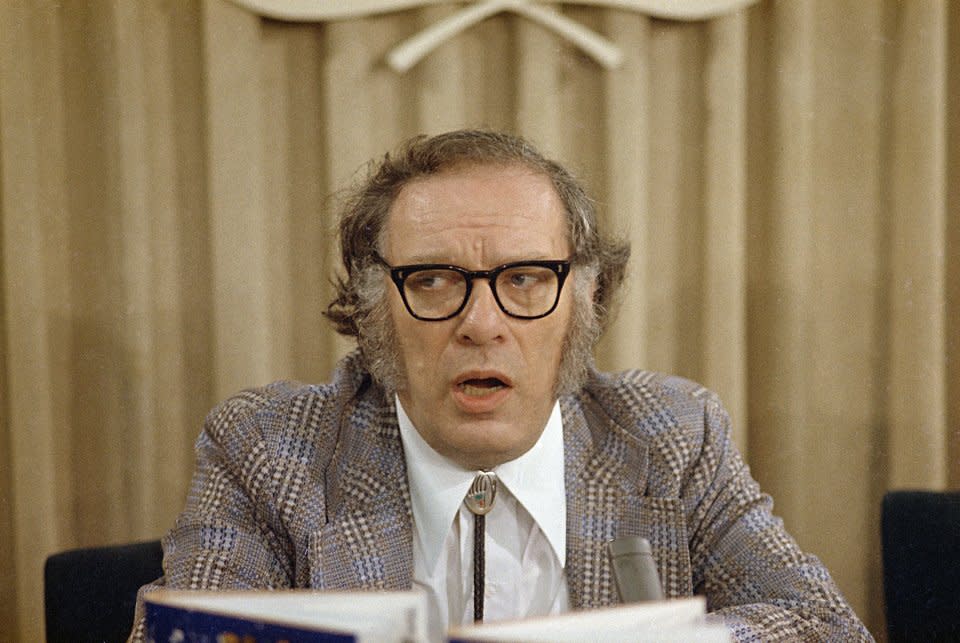
Musk describes Asimov’s Foundation series as a kind of “futuristic version of Gibbon’s ‘Decline and Fall of the Roman Empire.”
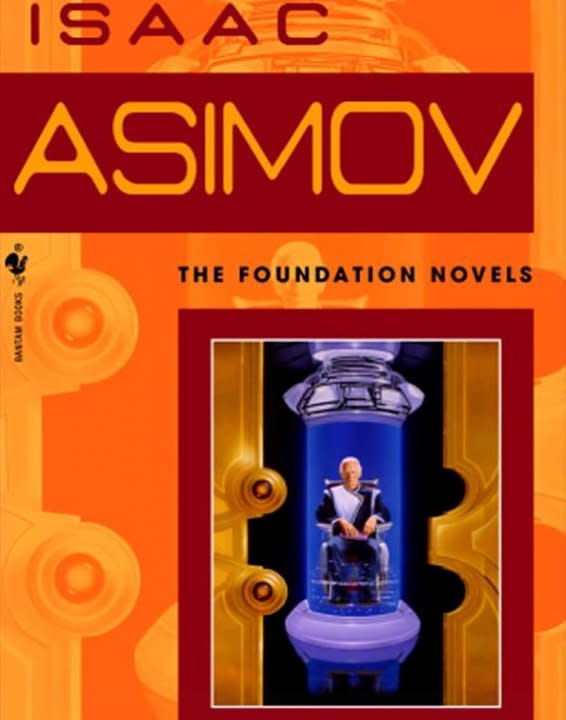
Foundation describes the downfall and rebirth of a Galactic Empire that spans galaxies, which collapses at the height of its influence, not unlike Rome.
One of the book’s core ideas is “psychohistory,” a fictional social science that that lets you predict the future of civilizations, not people.

Psychohistory was invented by Hari Seldon, a scientist who uses it to predict the downfall of the Galactic Empire and summarily tried for treason.
Elon Musk believes that civilization could still collapse.

“We’re obviously in a very upward cycle right now and hopefully that remains the case. But it may not. There could be some series of events that cause that technology level to decline,” Musk told the Guardian.
In the future of Foundation, human civilization has long since spread among the stars. Nobody is totally sure which planet humanity came from.

Elon Musk is famous for his desire to spread humanity to the stars, as a hedge against extinction. He’s even proposed a Mars colony.
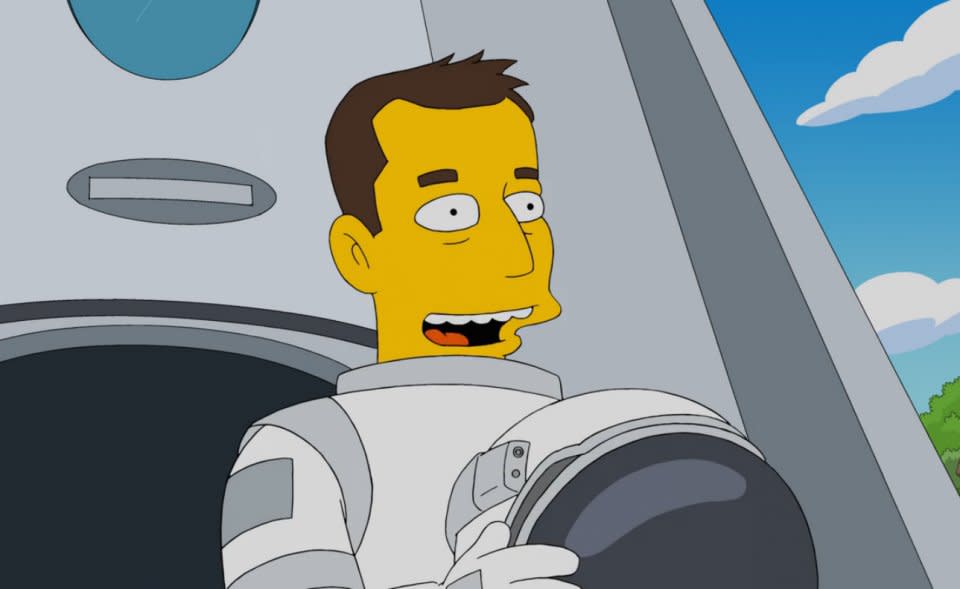
“Given that this is the first time in 4.5 billion years where it’s been possible for humanity to extend life beyond Earth. It seems like we’d be wise to act while the window was open and not count on the fact it will be open a long time,” Musk said in an interview with the Guardian.
The titular Foundation is a group of scientists and researchers that go into exile as a part of Seldon’s plan to protect science from the coming dark ages.
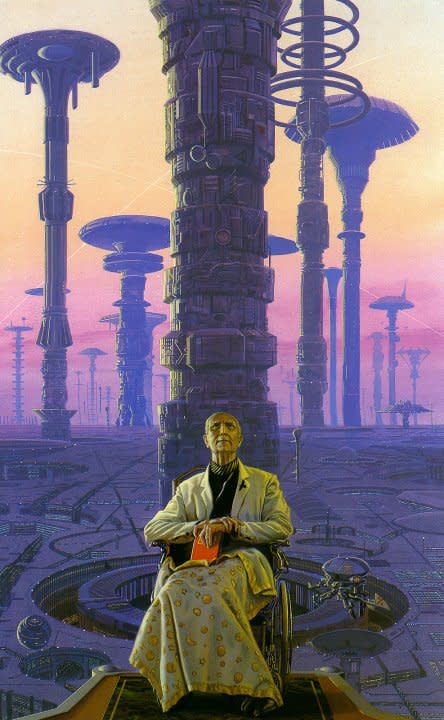
Seldon’s predictions show that without a group of scientists working to preserve culture, the fall of the Empire will result in a dark age 30,000 years long.
With a Foundation designed to protect the secrets of the Empire and share the results of its scientific research, Seldon believes that dark age will only last 1,000 years. But barbarians and warlords attack the Foundation, trying to get their advanced weapons, with only Seldon’s forewarnings and its own technology to defend itself.
Elon Musk has made a bunch of Tesla Motors patents available for anybody to use.
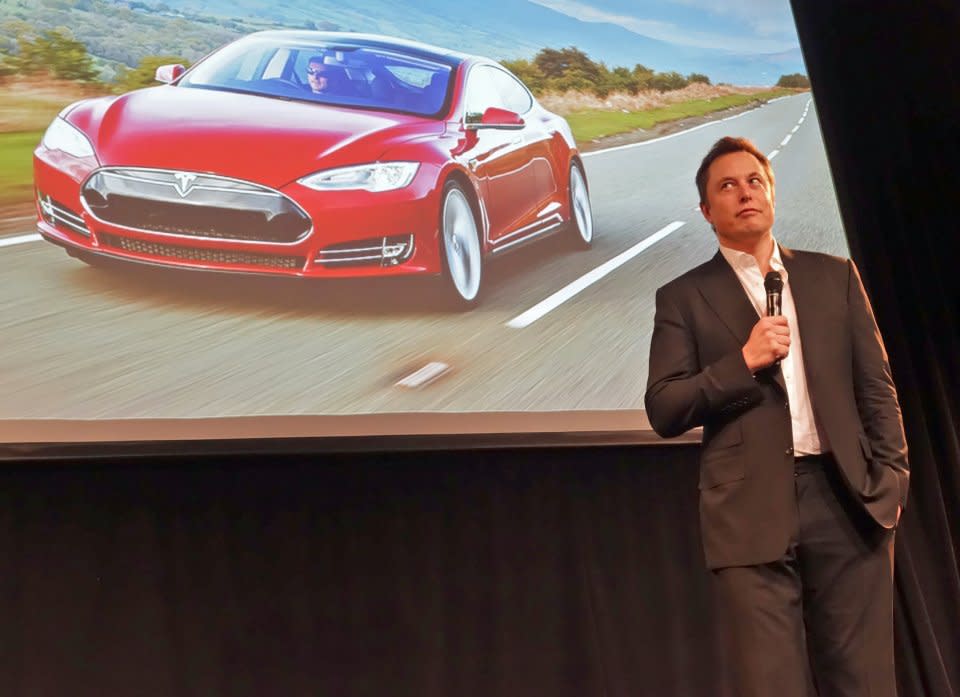
Investors didn’t like the move, but Musk saw it as necessary to spur the development of mainstream electric vehicles.
In addition to a bunch of Foundation sequels, Asimov is probably best known for I, Robot, which introduced the Three Laws of Robotics.

The Three Laws, a set of behaviors that all robots have to abide by in Asimov’s novels, are as follows:
A robot may not injure a human being or, through inaction, allow a human being to come to harm.
A robot must obey the orders given it by human beings, except where such orders would conflict with the First Law.
A robot must protect its own existence as long as such protection does not conflict with the First or Second Law.
Elon Musk hasn’t done anything with robots, but he’s a big fan of driverless cars.

He even thinks they’re better than flying cars.
Now read about Uber CEO Travis Kalanick’s love of the Fountainhead:

Everything you need to know about Ayn Rand’s The Fountainhead, a book that inspires Uber’s billionaire CEO, Travis Kalanick>>
The post Everything you need to know about Issac Asimov’s Foundation, a book that inspires Elon Musk appeared first on Business Insider.

 Yahoo Finance
Yahoo Finance 
